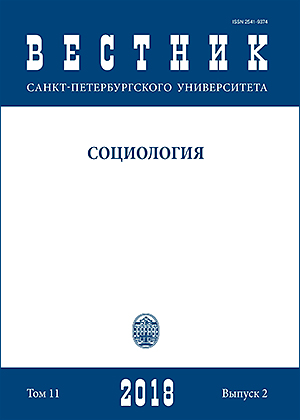In search of a musical identity
DOI:
https://doi.org/10.21638/11701/spbu12.2018.207Abstract
The issues of musical identities formation and functions are being discussed within the sociology of music since the 1990s. However, today they still have not lost their relevance. In the current article, the review of sociological studies of musical identity is presented. The key works discussed in this article are the studies, made by S. Frith, T. De Norah, D. Hesmondhalgh, A. Hennion. We conclude that there are three main turns in the studies of musical identity. The first turn— biographical — is more inherent in interdisciplinary research, and considers musical identity genesis in the course of aesthetic self-reflection. Most of all, it is focused on the analysis of private music listening and everyday practices. The second turn considers musical identities in the context of such categories as gender, ethnic or national identities. At the same time, musical identity itself is described as a type of collectivity. The third turn, the most represented in the literature today, describes musical identity in the context of the theory of tastes. It also addresses issues related to social exclusion, cultural selectivity and omnivorousness.
Keywords:
musical identity, self-identity, musical tastes, cultural omnivorousness
Downloads
References
References
Downloads
Published
How to Cite
Issue
Section
License
Articles of "Vestnik of Saint Petersburg University. Sociology" are open access distributed under the terms of the License Agreement with Saint Petersburg State University, which permits to the authors unrestricted distribution and self-archiving free of charge.




